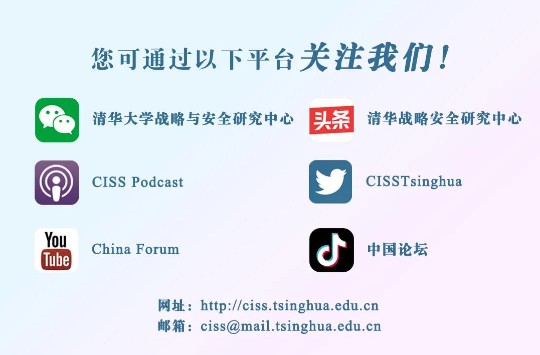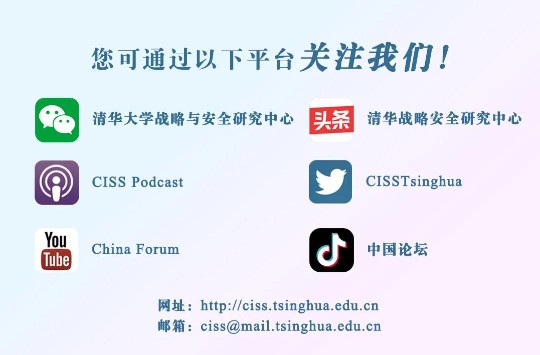一、 战略层面
2020/05/22 《外交政策》发文 《中国进入全球统治的两条路径》
中国拥有两条崛起为全球超级大国的路径。第一,首先在西太平洋地区建立区域霸权,进而争取全球霸权,这与历史上美国的崛起之路类似,也最为美国战略家所重视。第二,超越传统的地缘战略思路,而直接在全球层面扩大自身的经济、外交和政治影响力,进而建立由中国领导的、横跨亚欧大陆和印度洋的安全和经济秩序,并且强化在全球多边机制中的中心地位。
China Has Two Paths to Global Domination
If true superpower status is China’s desired destination, there are two roads it might take to try to get there. The first is the one American strategists have until now emphasized (to the extent they acknowledged China’s global ambitions). This road runs through China’s home region, specifically the Western Pacific. It focuses on building regional primacy as a springboard to global power, and it looks quite familiar to the road the United States itself once traveled. The second road is very different because it seems to defy the historical laws of strategy and geopolitics. This approach focuses less on building a position of unassailable strength in the Western Pacific than on outflanking the U.S. alliance system and force presence in that region by developing China’s economic, diplomatic, and political influence on a global scale.…… This second road would lead China more to its west than to its east, in service of building a new Chinese-led security and economic order across the Eurasian land mass and Indian Ocean, while establishing Chinese centrality in global institutions.
仅仅几年前,不少美国学者仍对中国顺应自由主义国际秩序抱有希望,认为中国即使不加入自由主义阵营也最多只能在西太平洋挑战美国的势力,但是在全球范围内挑战美国是一个遥不可及的愿景。然而,现在无数迹象明确表明,中国正从各个领域对美国全球领导地位发起挑战。
Only a few years ago, many American observers still hoped that China would reconcile itself to a supporting role in the liberal international order or would pose—at most—a challenge to U.S. influence in the Western Pacific. The conventional wisdom was that China would seek an expanded regional role—and a reduced U.S. role—but would defer to the distant future any global ambitions. Now, however, the signs that China is gearing up to contest America’s global leadership are unmistakable, and they are ubiquitous.
当前普遍观点认为,中国试图通过首先建立地区霸权来建立全球影响力。但这并不意味着要像苏联在冷战时期那样占领周边国家。但北京必须让自己成为西太平洋的主导力量,延伸至第一岛链(从日本到台湾再到菲律宾)以及更远的地方;它必须在邻国的安全和经济选择上拥有有效的否决权;它必须打破美国在该地区的联盟,迫使美国军队越来越远离中国海岸。如果中国不能做到这一点,它将永远不会有一个安全的地区基地,从而在全球投射力量。脆弱的周边海域将面临持续的安全挑战;它将不得不把精力和军事资产集中在防御上,而不是进攻上。只要华盛顿在第一岛链上保持强大的军事地位,从越南到日本的地区大国将会试图抵制中国的崛起,而不是容纳它。简而言之,如果中国仍然被美国的盟友、安全伙伴、军事基地和其他敌对超级大国的前哨所包围,中国就不可能成为一个真正的全球大国。
The emerging conventional wisdom holds that China will try to establish global influence by first establishing regional hegemony. This does not mean physically occupying neighboring countries (with the potential exception of Taiwan), as the Soviet Union did during the Cold War. But it does mean that Beijing must make itself the dominant player in the Western Pacific, out to the first island chain (which runs from Japan to Taiwan to the Philippines) and beyond; it must gain an effective veto over the security and economic choices of its neighbors; it must rupture America’s alliances in the region and push U.S. military forces farther and farther away from China’s shores. If China cannot do this, it will never have a secure regional base from which to project power globally. It will be confronted by persistent security challenges along its vulnerable maritime periphery; it will have to focus its energies and military assets on defense rather than offense. And so long as Washington retains a strong military position along the first island chain, regional powers—from Vietnam to Taiwan to Japan—will try to resist China’s rise rather than accommodate it. Put simply, China cannot be a true global power if it remains surrounded by U.S. allies and security partners, military bases, and other outposts of a hostile superpower.
争夺地区主导地位的风险在于,将战略竞争集中在美国所擅长的挑战上——赢得高科技的军事竞争——而这仅仅是将中国的邻国进一步推入华盛顿的怀抱。事实上,到目前为止,北京在改变菲律宾和泰国的地缘政治方向方面取得了部分成功。但在与澳大利亚和日本打交道时却适得其反。简而言之,目前尚不清楚北京是否能够成功地走上一条从地区通往全球强国的道路。这引发了一个问题:中国是否可能有第二条通往全球领导地位的道路。
Making a bid for regional dominance risks focusing the strategic competition on a challenge at which the United States typically excels— winning high-end, high-tech military competitions—and simply driving China’s neighbors further into Washington’s arms. So far, in fact, Beijing’s efforts at seduction and coercion have been partially successful in shifting the geopolitical orientation of the Philippines and Thailand, but they have backfired in dealing with Australia and Japan. In short, it is not clear that Beijing can successfully take a regional path to global power—which raises the question of whether there may be a second road to Chinese global leadership.
如果中国不是在考虑全球霸权之前先关注地区霸权,而是以另一种方式处理问题呢?第二条道路将更多地把中国引向西方,而不是东方,在欧亚大陆上建立一个由中国主导的新安全与经济秩序,同时确立中国在全球机构中的中心地位。按照这种方式,至少在可预见的未来,中国将不情愿地接受它无法在亚洲取代美国,也无法将美国海军推到西太平洋第一岛链之外。相反,它将更加强调按照自己的优势和形象塑造世界经济规则、技术标准和政治制度。
What if, instead of focusing on regional hegemony before turning to consider global hegemony, China approaches things the other way around? This second road would lead China more to its west than to its east, in service of building a new Chinese-led security and economic order across the Eurasian land mass and Indian Ocean, while establishing Chinese centrality in global institutions. In this approach, China would grudgingly accept that it could not displace the United States from Asia or push the U.S. Navy beyond the Western Pacific’s first island chain, at least for the foreseeable future. It would instead put increasing emphasis on shaping the world’s economic rules, technology standards, and political institutions to its advantage and in its image.
北京将考虑类比美国的另一种变化。美国在国际秩序中的领导地位在二战后出现并在冷战结束后得到巩固,这至少依赖于三个关键因素。第一,将经济实力转化为政治影响力的能力。第二,保持相对于世界其他地区的创新优势。第三,有能力塑造关键的国际机构和制定关键的全球行为规则。在这第二条道路上,中国将寻求复制这些因素。
Here, Beijing would consider a different variation of the U.S. analogy. U.S. leadership of the international order that emerged after World War II and was consolidated after the end of the Cold War rested on at least three critical factors. First, the ability to convert economic might into political influence. Second, the maintenance of an innovation advantage over the rest of the world. And third, the capacity to shape the key international institutions and set the key rules of global conduct. In traveling this second road, China would seek to replicate these factors.
https://foreignpolicy.com/2020/05/22/china-superpower-two-paths-global-domination-cold-war/
2020/09/23 卡内基基金会发文《美国外交政策要更好服务于中产阶级》
没有证据表明美国的中产阶级会支持本国政府旨在恢复美国单极时刻的外交政策,这些政策将引起对华新冷战或者民主-威权意识形态的全球对抗。美国的外交政策应当以促进中产阶级福祉、获得中产阶级认同为根本旨归,因此美国需要管理与中国的战略竞争,一方面降低发生冲突的风险,另一方面阻止中国获取经济和技术霸权。
Making U.S. Foreign Policy Work Better for the Middle Class
But there is no evidence America’s middle class will rally behind efforts aimed at restoring U.S. primacy in a unipolar world, escalating a new Cold War with China, or waging a cosmic struggle between the world’s democracies and authoritarian governments.…A foreign policy agenda that would resonate more with middle-class households and, in fact, advance their well-being, should……manage strategic competition with China to mitigate the risk of destabilizing conflict and counter its efforts toward economic and technological hegemony.
https://carnegieendowment.org/2020/09/23/making-u.s.-foreign-policy-work-better-for-middle-class-pub-82728
二、经贸问题
2020/02/07 《外交政策》发文《美国需要新的经济哲学,外交政策专家能起到帮助》
当前,国际关系中权力的行使越来越依赖于经济手段的运用,威权资本主义对自由市场经济构成挑战,经济因素将成为美国在地缘政治领域成败的关键因素之一,特别是在面对中国时。中国已经拥有苏联从未有过的经济实力和影响力,尽管军事力量仍然很重要,但美中大国竞争的结局将最终取决于两国谁能更有效地管理其国民经济并塑造全球经济。
America Needs a New Economic Philosophy. Foreign Policy Experts Can Help
U.S. foreign-policy makers now face a world in which power is increasingly measured and exercised in economic terms. Authoritarian capitalism is challenging market democracy as the prevailing model—and technological disruption, climate change, and inequality are straining the compact between governments and their people. In such a world, economics, at least as much as anything else, will determine the United States’ success or failure in geopolitics.
This is especially true when it comes to dealing with China, which has already reached a level of economic strength and influence the Soviet Union never enjoyed. While military power will still matter, the emerging great-power competition between the United States and China will ultimately turn on how effectively each country stewards its national economy and shapes the global economy.
美国需要超越过去几十年来盛行的经济意识形态(有时被不完美地称为新自由主义),重新思考经济如何运作,它应该服务于哪些目标,以及应该如何重组经济以服务于这些目标--这既是地缘政治的需要,也是经济的需要。首先,政策制定者应该认识到,投资不足比美国国债对国家安全的威胁更大。第二,倡导产业政策(广义上说,旨在重塑经济的政府行动)曾经被认为是令人尴尬的,现在它应该被认为是更明显的选择。第三,政策制定者必须意识到,每个贸易协议都是好的贸易协议,更多的贸易总是解决问题的答案。
the United States needs to move beyond the prevailing economic ideology of the past few decades (sometimes imperfectly termed neoliberalism) and rethink how the economy operates, the goals it should serve, and how it should be restructured to serve those goals—and this is a geopolitical imperative as well as an economic one. 1. First, policymakers should recognize that underinvestment is a bigger threat to national security than the U.S. national debt. 2. Second, advocating industrial policy (broadly speaking, government actions aimed at reshaping the economy) was once considered embarrassing—now it should be considered something close to obvious. 3. Third, policymakers must move beyond the received wisdom that every trade deal is a good trade deal and that more trade is always the answer.
外交政策专业人员现在应该对自己的国内和国际经济假设中需要改变的地方有更敏锐、更系统的认识。
The time has come for foreign-policy professionals to develop a sharper and more systematic sense of what needs to change in their own economic assumptions, both domestic and international.
https://foreignpolicy.com/2020/02/07/america-needs-a-new-economic-philosophy-foreign-policy-experts-can-help/
三、中美的经济竞争
2019/09 《没有灾难的竞争:美国如何与中国在竞争中共存》
与苏联不同,中国已深深融入世界,并与美国经济交织在一起。中国是几个经济领域的新兴全球领导者,其经济比苏联以往任何时候都更加多样化,灵活和复杂。北京也更善于将本国的经济实力转化为战略影响力。苏联受制于封闭的经济,而中国则拥抱全球化,成为世界上三分之二以上国家的最大贸易伙伴。在军事化的美苏冲突中所缺乏的那种经济、人与人和技术的联系,决定了中国与美国和更广泛世界的关系。作为一个全球经济行为体,中国是美国盟友和伙伴繁荣的核心;它的学生和游客流经全球大学和城市;它的工厂是世界许多先进技术的锻造厂。这张厚厚的关系网使得我们甚至很难开始确定哪些国家与美国结盟,哪些国家与中国结盟。
Competition Without Catastrophe: How America Can Both Challenge and Coexist With China
Unlike the Soviet Union, China is deeply integrated into the world and intertwined with the U.S. economy.China is the emerging global leader in several economic sectors, and its economy is more diversified, flexible, and sophisticated than the Soviet Union’s ever was.
Beijing is also better at converting its country’s economic heft into strategic influence. Whereas the Soviet Union was hamstrung by a closed economy, China has embraced globalization to become the top trading partner for more than two-thirds of the world’s nations. The kinds of economic, people-to-people, and technological linkages that were lacking in the militarized U.S.-Soviet conflict define China’s relationship with the United States and the wider world. As a global economic actor, China is central to the prosperity of American allies and partners; its students and tourists flow through global universities and cities; its factories are the forge for much of the world’s advanced technology. This thick web of ties makes it difficult to even start to determine which countries are aligned with the United States and which are aligned with China.
与将资源集中在军事力量上的苏联不同,中国将地缘经济学视为竞争的主要舞台。
Unlike the Soviet Union, which focused its resources on military power, China views geoeconomics as the primary arena of competition.
与中国进行经济竞争的最决定性因素是美国的国内政策。
The most decisive factor in the economic competition with China is U.S. domestic policy.
国内政策中最首要的是华盛顿应该与志趣相投的国家合作,针对世界贸易组织当前未解决的问题(从国有企业到本土创新政策再到数字贸易)定义一套新的标准。理想情况下,这些标准将连接亚洲和欧洲。为此,美国应考虑启动一项规则制定倡议,以建立世贸组织体系下的市场民主体制,以填补这些空白。
On top of this domestic foundation, Washington should work with like-minded nations to define a new set of standards on issues that the World Trade Organization does not currently address, from state-owned enterprises to indigenous innovation policies to digital trade. Ideally, these standards would connect Asia and Europe. To this end, the United States should consider starting a rules-setting initiative of market democracies layered over the WTO system, which would fill these gaps.
https://carnegieendowment.org/2019/09/13/competition-without-catastrophe-how-america-can-both-challenge-and-coexist-with-china-pub-79840
CISS实习生:张诚杨、郑玮琨、王叶湑、黄婷、李欣芷
CISS指导老师:董汀、姚锦祥、苏艳婷


